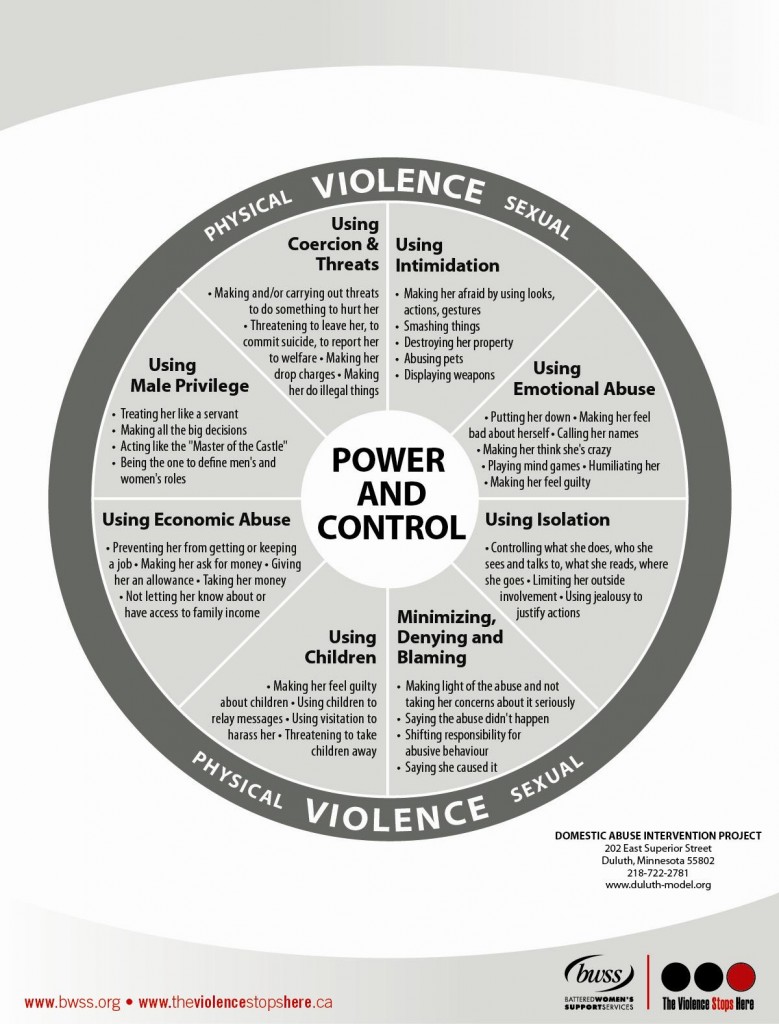The Dynamics of Power and Control After Separation in Relation to the Family Law Processes
by Vicky Law, BWSS Legal Advocate
It is commonly known that violence escalates when a woman decides to separate from her abusive partner. After separation, an abusive partner will try to maintain his power and control through many ways. One form of control usually appears in the family law process, especially when children are involved. Through court-related abuse and harassment, abusers are able to use the significance of a child to continue his abuse towards the child’s mother. Court-related abuse and harassment is one of the many ways that an abuser can continue post-separation abuse and to enact revenge on the women for leaving the relationship.[1] Various forms of court-related abuse can occur simultaneously, creating significant barriers for women to resolve their family law matters. Some of these forms of abuse can include withholding financial information and/or financial support and changing the parenting arrangements without notifying the other parent and against court orders.
Due to the dynamics of power within an abusive relationship, financial abuse continues after separation and perpetuates the instability of the women’s financial circumstances. One of the many ways that financial abuse can continue is by withholding financial information or refusing to provide child support payments. As a requirement under the family law process, both parties are obligated to disclose financial information in order to divide family assets and to determine the appropriate amount of child support. Abusers continuously fail to disclose accurate financial information and assets in order to circumvent the obligation to provide child support, placing women in substantial financial hardship. Even though legal mechanisms are in place to request accurate financial disclosure, the lack of legal representation creates difficulties for women to access the available remedies in a reasonable time frame. As a result, legal resolutions are unnecessarily delayed, creating additional stress and anxiety. Many advocates and frontline workers with women have stated that financial abuse is used to force women into compromising with the abuser.[2] Compromising is sometimes seen as the only option because it may be the only method to stop the abuse and harassment.
Another form of court-related abuse and harassment can be seen when abusive partners use children as a mechanism for power and control. In the course of working with women at Battered Women’s Support Services, many women have indicated that the children’s father do not follow the parenting arrangements set out in the court order. Women will often describe situations where the abuser will not appear at the stated time, return the children late, or even unexpectedly arriving at her house to demand parenting time with the children. Women rarely receive prior notice about the change in parenting schedule, yet she is unable to refuse parenting time due to the repercussions she may face by the abuser in that moment and in court. As a result, women are constantly worried about when their children would return home, whether she would be served with another court application from the abuser with allegations of denied parenting time, and if so, what evidence she could produce to refute his allegations. This continuous form of control over the women’s behaviour can resume for significant periods of time because it is presumed that a child’s best interest is to spend time with both parents. As a result, women’s lives are persistently controlled by their abusers through the use of children as a form to maintain his power and control.
These forms of court-related abuse and harassment are only two of the many ways women continue to experience violence post-separation. The assumptions that abuse will cease once a woman leaves a violent relationship do not reflect the realities of women who are experiencing the impacts of the legal system. It is necessary for women who experience court-related abuse and harassment to receive support from individuals who recognize this type of abuse and the long-lasting dynamics of power and control related to the family law process. The Legal Services and Advocacy Program at Battered Women’s Support Services provides assistance to women who are experiencing court-related abuse and harassment. With knowledge of the impacts of post-separation abuse, the workers at the Legal Services and Advocacy Program work collaboratively with women to understand abuse and to build skills to resist the dynamics of control related to the family law process. If you or you know anyone who needs legal support, please call our Crisis Line at 604-687-1867 or toll-free at 1-855-687-1868.
[1] Andrea Vollans, “Court-Related Abuse and Harassment: Leaving an abuser can be harder than staying”, YWCA Vancouver 2010 <http://www.bcwomens.ca/NR/rdonlyres/8D65CADE-8541-4398-B264-7C28CED7D208/50364/LitigationAbuseFINAL.pdf>.
[2] Ibid at 10.
Read more about the 16 Days of Activism Against Gender-based Violence campaign:
International Day to End Violence Against Women in Canada
Women’s Leadership for One Future Without Violence
If you could do something to end violence against girls and women, wouldn’t you?






